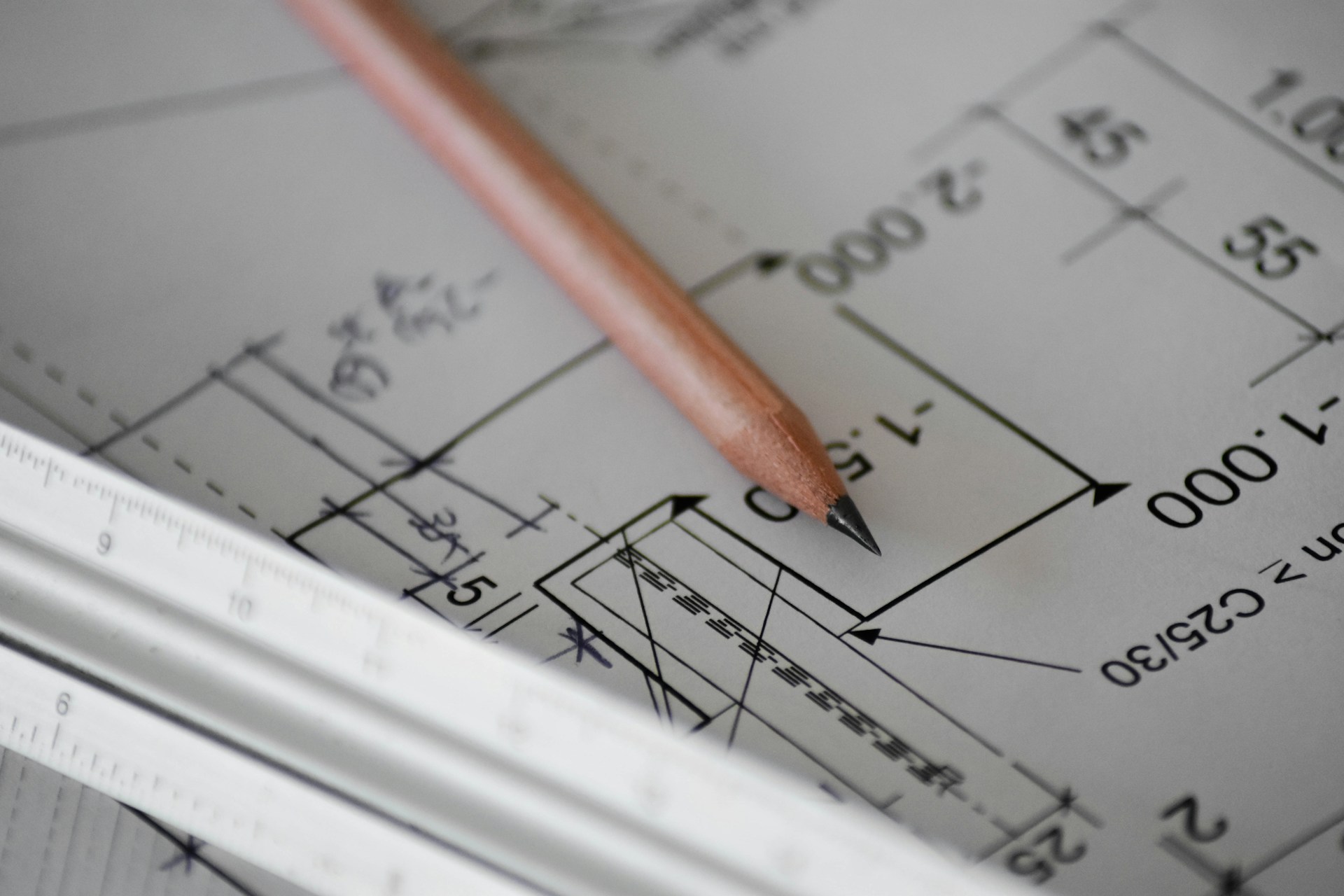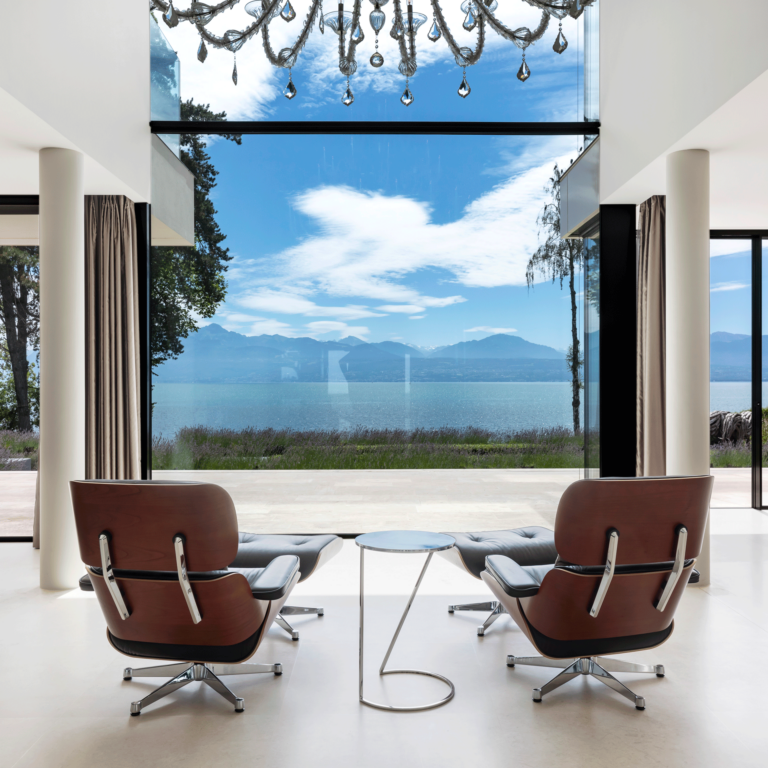Buying off-plan: How do you buy a property that has not yet been built?
Reading time — 5 minutes

Most new-build properties are sold off-plan, before construction has even begun. For the buyer, this type of property project has many advantages: the guarantee of a home that meets the latest standards, the possibility of personalising your future flat or house, etc. But it’s important not to rush into things and to prepare your project very carefully. FGP Swiss & Alps provides you with the essential information you need to buy off-plan in Switzerland with complete peace of mind.
Buying off-plan: an opportunity to personalise your future property
Buying a property off-plan means investing in a property where construction has not yet started. Once completed, the property will comply with the latest standards, particularly in terms of energy consumption. Above all, it’s an opportunity to personalise your future property according to the choices offered by the property management company.
As part of your off-plan purchase project, the agency or broker will provide you with a number of documents, including a construction specification. This details the budget allocated to each trade: kitchen, bathroom, floor coverings, paintwork, electrical network, etc. You can also intervene in the different elements of the home (kitchen or living room equipment, type of shower, etc.) and, to a certain extent, modify the interior layout by redrawing the initial plan… with the agreement of the developer and the architect.
Each modification depends on the budget and technical feasibility. If your choices result in the budget being exceeded, you will be responsible for covering the additional costs. This description will then be signed at the notary’s office before work starts.
The purchaser’s obligations: signing the purchase contract and financing the project
When you sign the off-plan purchase agreement, you commit to seeing the project through to the end. This makes it difficult to give up, even if the property has not yet been built. Depending on your situation (family problems, financial difficulties, etc.), it will always be possible to find a solution in collaboration with your broker, who could, for example, find another buyer for the property concerned.
As long as the process continues as agreed in the contract, you also undertake to pay the sums due in accordance with the chosen terms and conditions. There are two options for buying off-plan: forward purchase and purchase of a share of land.
Forward buying
The first option is to buy off-plan, also known as “turnkey”. The principle is simple: you become the owner of the property once it has been completed. Beforehand, you sign a promise to purchase in the presence of a notary, which gives you an irrevocable commitment. When you sign, you pay a deposit of between 10% and 20% of the final price. The balance is paid on delivery of the property, by means of a mortgage (which the bank will have granted you in advance) or in cash.
This is the most expensive option, as the transfer duties payable by the purchaser are calculated on the total value of the property. On the other hand, you are in no way responsible for any additional costs incurred during construction. So it’s also the most secure solution.
Share purchase of land
The second option, known as “buying a share of the land”, involves becoming the owner of the land on which your future home will be built before work has even begun. In this case, you buy the entire plot (for a house, villa or chalet that you are having built) or the theoretical plot share of the future flat (for a block of flats). At the same time, you sign a general contractor’s contract with the company responsible for building the property. This contract provides for the payment of several instalments, depending on the progress of the work: the first instalment and the cost of the land together represent around 60% of the total price.
This method of buying off-plan means that you participate in financing the project: you take out your own construction loan and pay the interest on it. At the end of the works, this loan is converted into a conventional mortgage. These additional costs are offset by a reduction in transfer duties, which are calculated solely on the basis of the value of the land. For example, these duties are 1 or 1.5% in the canton of Valais, 2.2% in the canton of Vaud (with a potential increase of 1.1% applicable by the municipality), and 3% in the canton of Geneva: a substantial saving.
However, this solution is more risky, as you are partly replacing the developer and taking on the risks inherent in the project, with financial consequences if the builder defaults.
Buying off-plan: essential precautions to take before you go ahead
While buying off-plan offers many advantages, you need to bear in mind that the property does not yet exist when you sign the contract. This means that you need to be very careful when preparing your project, and take precautions at every stage.
Find out everything you need to know beforehand
It’s difficult to imagine yourself in a property based solely on the plans provided by the estate agent or broker. In some cases, you can ask for a virtual visit so that you can get a clearer picture of the premises using computer-generated images – interior and exterior spaces, communal areas. It’s just as important to visit the construction site and study the immediate environment in which you are preparing to live: proximity to amenities, public transport links, road access, etc.
Find out more about the promoter
The solidity of the property developer is an essential part of any off-plan purchase project. Take the time to find out about their reputation, experience and creditworthiness. Find out about the developer’s previous projects, by consulting the reviews left by buyers. Take into account the guarantees set out in the contract. Finally, the reliability of construction companies is just as decisive, especially when buying a share of land.
Pay attention to nomenclatures
If you’re planning to buy off-plan, pay attention to the nomenclature used: it varies from canton to canton. This applies, for example, to the number of rooms: in the canton of Vaud, the kitchen is considered to be a room in its own right, which is not the case in Geneva. Beware also of the concept of surface area, which has various meanings depending on the case: net or gross living area, sales area, weighted surface area, PPE surface area, etc., with practices differing from one canton to another.
Get help from professionals
Support is the key to a successful off-plan purchase. You can count on the support of property professionals to help you deal with all the issues involved in buying a property off-plan, from signing the contract to guarantees and financing arrangements. Your broker will be your point of reference for any questions you may have about the project or the property, right through to handing over the keys.


